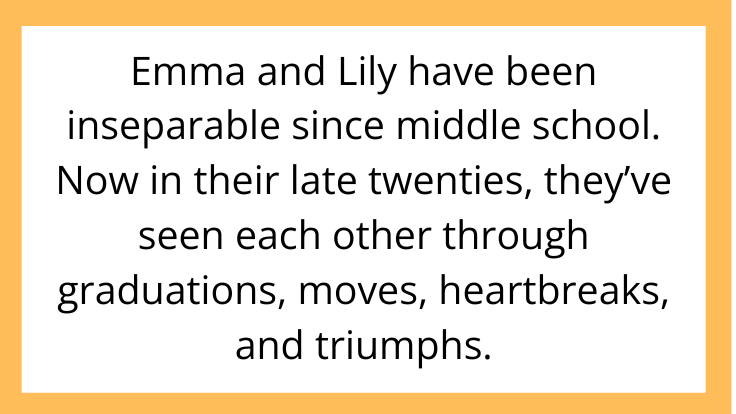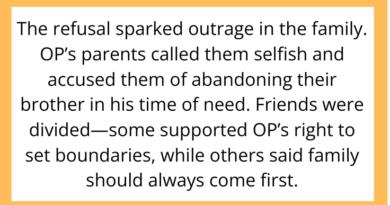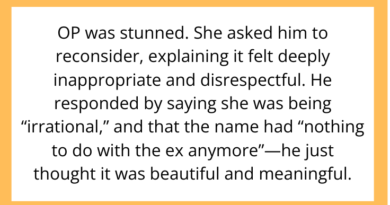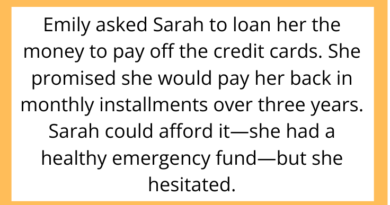AITAH for Telling My Best Friend She’s Wasting Her Life on Her Deadbeat Boyfriend?
When it comes to friendships, honesty can sometimes feel like a double-edged sword. Today’s AITAH scenario takes us into a tense confrontation between two lifelong friends, one of whom believes tough love was the only way to save the other from a toxic relationship. But was it truly helpful—or just judgmental?
Let’s dive into the story.
The Story: A Friendship on the Brink

Emma and Lily have been inseparable since middle school. Now in their late twenties, they’ve seen each other through graduations, moves, heartbreaks, and triumphs.
Recently, however, Emma has grown frustrated watching Lily stay in a relationship with Dan—a boyfriend who has no job, no plans, and no intention of changing. Over the past two years, Lily has paid all the bills while Dan spends his days playing video games and occasionally picking fights with her about “respect.”
Emma tried to be supportive, hoping Lily would see the light on her own. But after another tearful phone call in which Lily confessed she felt trapped and exhausted, Emma finally snapped.
The Confrontation: When Honesty Turns Harsh

During brunch last weekend, Emma laid it all out:
“You’re wasting your life on someone who doesn’t deserve you. You could be doing so much better. You’re basically this guy’s meal ticket.”
Lily went silent. Then she stood up, threw some cash on the table, and left without a word.
Since then, she hasn’t returned texts or calls. A mutual friend said Lily feels humiliated and betrayed, accusing Emma of kicking her when she was down.
Emma, meanwhile, feels she did the right thing. She insists she spoke out of love and refuses to apologize for telling the truth.
Still, she turned to the AITAH subreddit to ask: Was I the villain for confronting my best friend about her relationship?
Tough Love or Unnecessary Cruelty?
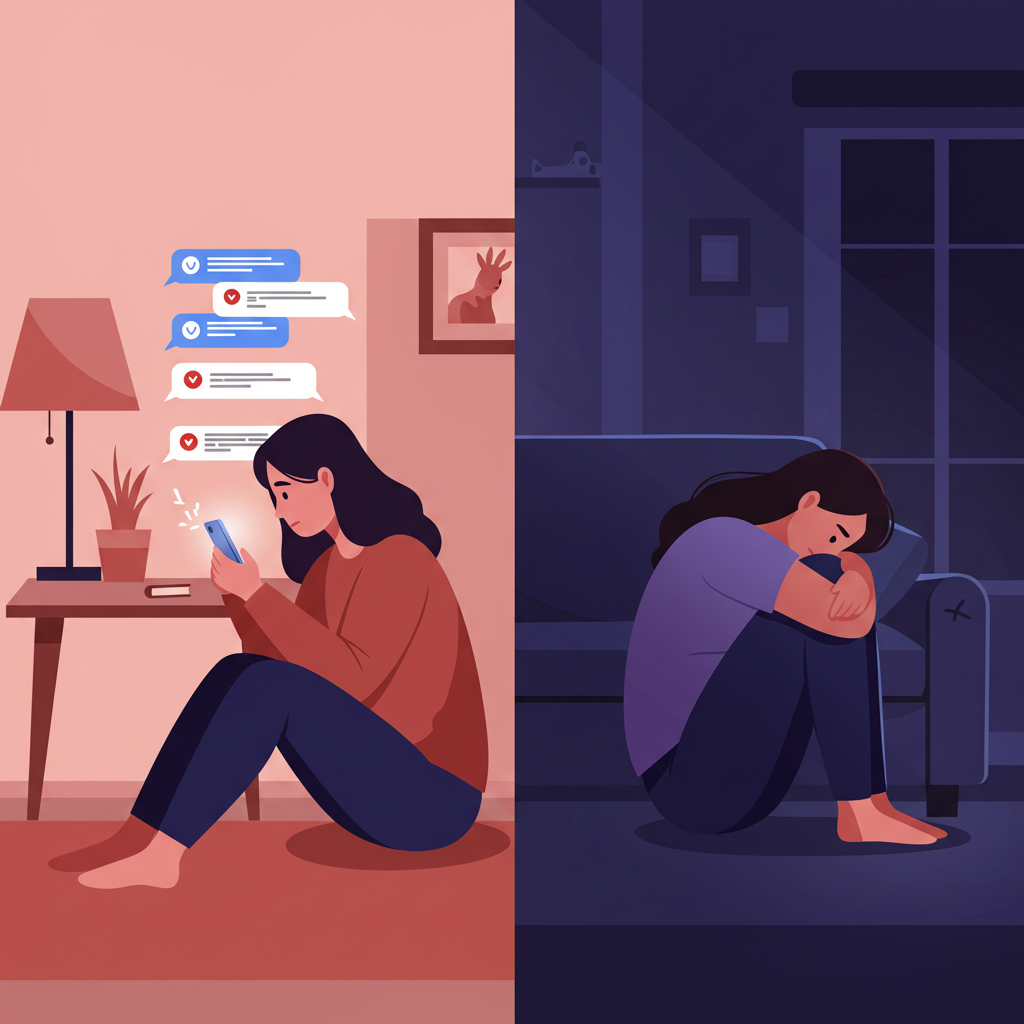
The Argument for Emma: Sometimes You Have to Say It
Many Redditors agreed with Emma’s perspective. When you watch someone you love get dragged down by an unmotivated partner, it can be painful to stay silent. Emma listened for years without judging—until she felt Lily was at her breaking point.
As some commenters pointed out, real friends don’t just say what you want to hear. They say what you need to hear, even if it stings.
“You were trying to shake her awake,” one person wrote. “Sometimes people need a wake-up call.”
Others noted that enabling Lily’s situation would be worse than risking offense.
The Argument for Lily: Timing and Delivery Matter
But not everyone sided with Emma. A large number of commenters emphasized that while her concerns were valid, her approach was unnecessarily harsh.
“This sounds more like a lecture than a compassionate intervention,” one user said. “When someone’s vulnerable, you have to choose your words carefully.”
Others suggested that Emma could have expressed concern privately, without implying Lily was “wasting her life.”
“Being right doesn’t mean you handled it right,” another commenter noted.
The Bigger Issue: The Fragility of Self-Esteem in Toxic Relationships
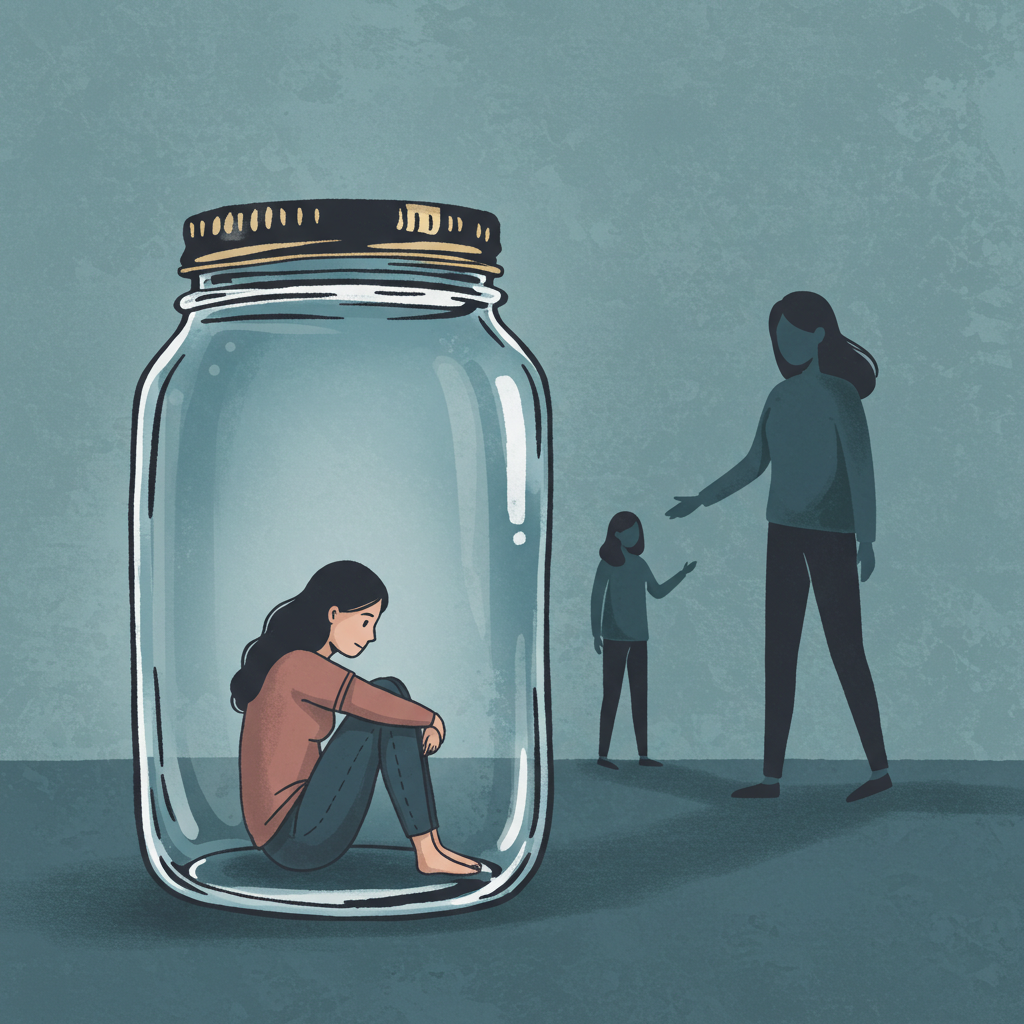
Emma’s story resonates because it highlights a dynamic many people experience: watching a loved one stay with someone who clearly isn’t good for them.
But there’s a reason so many people stay. Toxic relationships often erode self-worth until it feels impossible to leave. When friends confront them bluntly, it can feel less like support and more like shame.
In Lily’s case, she already knew she was unhappy. What she needed may have been validation and an offer of help—not an ultimatum.
How Could Emma Have Approached It Differently?

Expressing Concern with Empathy
Instead of calling Dan a parasite outright, Emma could have tried:
-
“I hear how exhausted you are. You deserve a partner who contributes to your life, not just takes from it.”
-
“I’m worried about you. Do you feel safe and supported in this relationship?”
-
“If you ever decide you want to make a change, I’ll be here to help you.”
These statements focus on Lily’s feelings and options, rather than labeling her choices.
Offering Tangible Support
Many people feel stuck because they don’t see a way out. Emma could have offered:
-
A place to stay temporarily if Lily decided to leave.
-
Help making a plan to move forward.
-
Encouragement to see a therapist or counselor.
These actions show care without judgment.
The Lesson: Honesty Is Important, But So Is Compassion

It’s easy to justify harsh truths in the name of love. But timing and delivery matter. When someone is already hurting, they’re less likely to hear your message if it comes wrapped in frustration or scorn.
Emma may not be a villain, but she also isn’t entirely blameless. In friendships, being honest doesn’t excuse being unkind.
